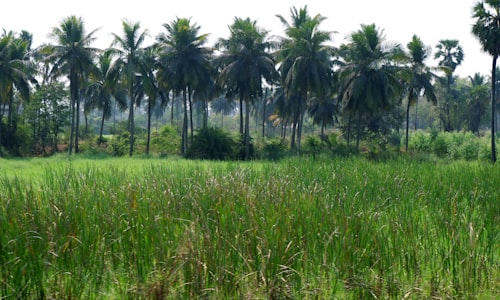Biodegradable Plastic facts
While investigating facts about Biodegradable Plastic, I found out little known, but curios details like:
A Florida-based beer company created fully edible 6-pack rings from brewing byproducts such as wheat and barley; the rings are just as strong as the plastic variety, yet completely digestible and biodegradable
Cellophane, the clear plastic used to wrap food, is biodegradable and produced from wood pulp
In my opinion, it is useful to put together a list of the most interesting details from trusted sources that I've come across. Here are 22 of the best facts about Biodegradable Plastic I managed to collect.
-
Dumping golf balls into the sea is outlawed because the plastic does not break down. A professor at the University of Maine used ground-up lobster shells and other materials to develop biodegradable golf balls. These balls are intended for use on cruise ships or driving ranges by the ocean.
-
Indonesian entrepreneurs make plastic bag using cassava starch, vegetable oil, and organic resins. The resulting "100% bio-based" material was biodegradable and compostable, breaking down over a period of months on land or at sea, or instantly in hot water.
-
In 2008 Rwanda instituted a national ban on non-biodegradable plastic bags. Business owners caught breaking this law could face up to a year in prison.
-
There is a way to make transparent wood, which is biodegradable and has many advantages over glass and plastic when used in architecture and furniture.
-
Chicken feathers can be processed into a biodegradable plastic-like material and are used in products as varied as dishes, circuit boards, beauty products, and boat construction.
-
Most biodegradable plastics only degrade in industrial composters using specific temperature, humidity, and even bacteria.
-
Engineers have developed a ‘plastic’ which biodegrades in a month and won’t cause choking if eaten.
-
Starch extracted from the pea can be used for the manufacture of bioplastics (biodegradable and eco-friendly type of plastics).
-
Galalith, a plastic made from milk. It is odourless, insoluble in water, biodegradable, antiallergenic, antistatic and virtually nonflammable.

What is true about biodegradable plastic?
You can easily fact check it by examining the linked well-known sources.
The gut bacteria in mealworms can transform plastic into safe biodegradable waste
The primary ingredient in the vast majority of chewing gum sold is ‘gum base’ – a non-biodegradable substance made from synthetic polymers – or plastic - source
Most teabags contain plastic and are not fully biodegradable. - source
A 2015 study found that biodegradable plastics don't biodegrade any more than other plastics
A company who is creating a biodegradable plastic from Methane, a greenhouse gas that traps 25x more heat than CO2. - source
Most biodegradable plastics don't actually break down
There's a company that makes biodegradable plastic with the use of microorganisms, and they are aptly named Bioplastech
Biodegradable plastic . . .isn't actually biodegradable
Tea bags use non-biodegradable plastic to contain the tea leaves inside the bag.
The water ball, named "Ooho" is a biodegradable and natural membrane which can be fully swallowed and digested. It works same as drinking water for hydrating people.This will definitely help in replacing the millions of plastic bottles thrown away.